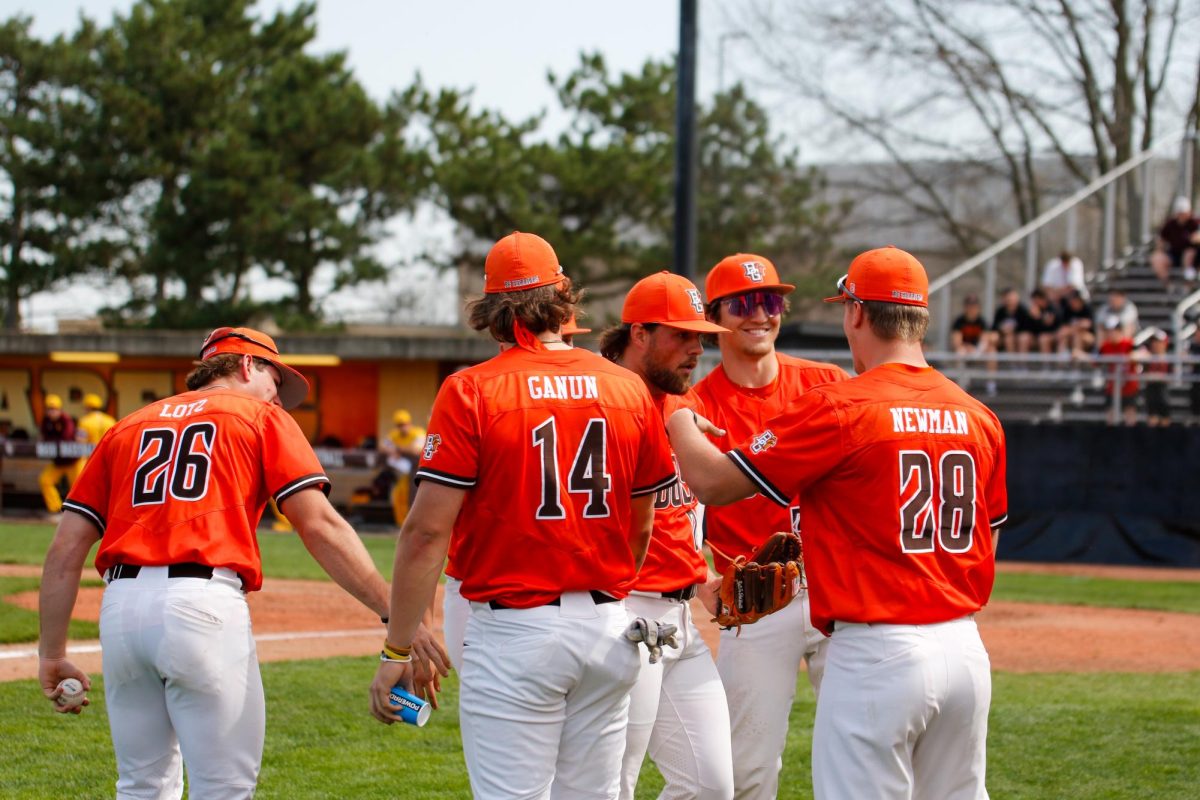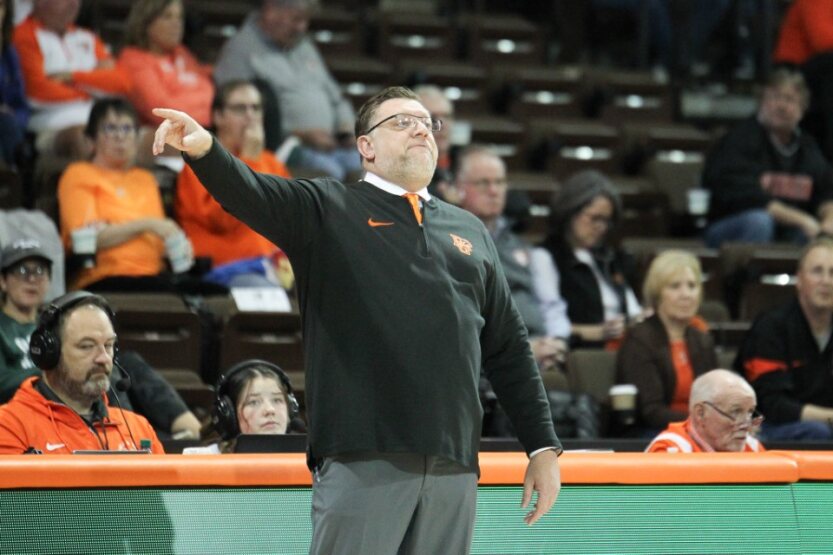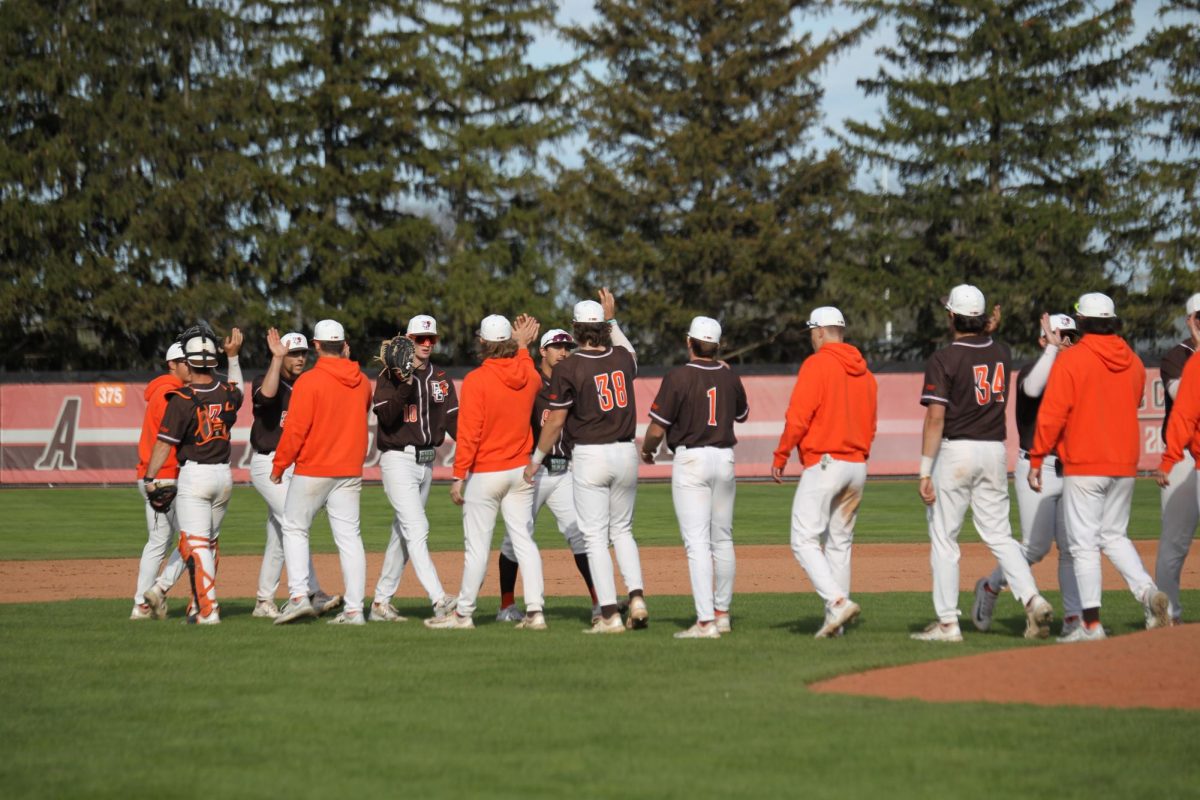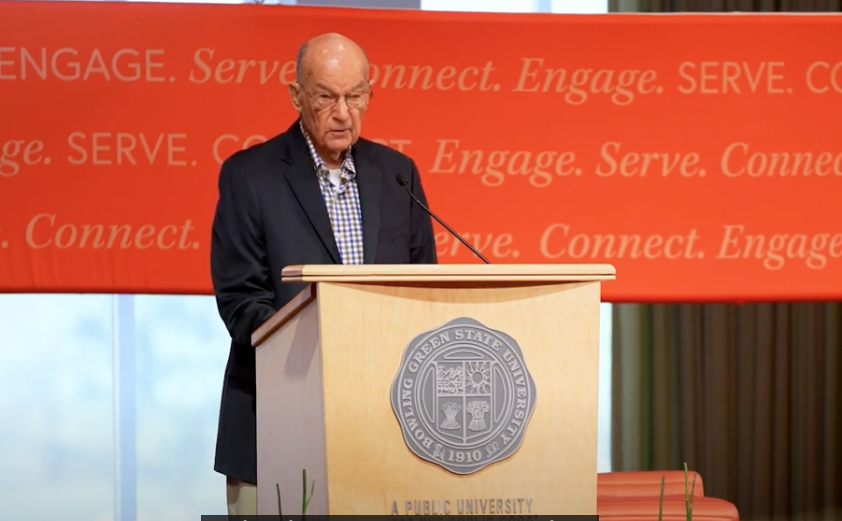Every incident that occurs in someone’s life has an answer, but the resolution may take years to reach.
In high school, I had this chess set. It was miniature and the pieces fit into pegboard. I could write on and on how slick this chess set was, but the point is I had lost one of the pieces — the black bishop. I was bummed that not only had I lost a piece of a really cool toy, but also that my diagonal attack was cut in half. Its replacement was a sliver of painted balsa wood. It looked like a tiny black phallus, but it worked for the time being.
It’s funny how things work out over time. Over break, I was playing with Legos in my apartment. (Yes, Legos. You’re jealous.) As I was sifting for that elusive piece, I came across an object I had seen before.
That missing bishop was in my Lego container, which had been in my attic for quite some time. I brought those Legos from home so my roommates and I could escape from the drudgeries of final exams.
Events happen in everyone’s lives that cannot be answered right away. Sometimes, like the loss of a best friend or family member, the reasons behind their death never expose themselves to the mourner. In the case of E. Pierce Marshall, answers — in the form of justice — didn’t come for almost a decade.
Marshall’s father, oil tycoon J. Howard Marshall II, died in 1995, and a federal court ruled that J. Howard’s $88.5 million fortune belonged to his widow, Vickie Lynn Marshall — known to the pop culture world as Anna Nicole Smith.
Two weeks ago, the 9th U. S. Circuit Court of Appeals threw out the previous ruling, awarding the fortune to Pierce. The judge was probably watching E! or skimming through a Playboy, and realized a 24-year-old former stripper and current waste of life shouldn’t be getting a 90-year old man’s oil fortune.
Staying with the times, every topic seems to apply to the tsunami disaster. With 147,000 dead, many families and nations beg for answers. While it’s brought out the best in America — an AP poll shows that 3 out of 10 Americans have donated money toward relief — no doubt this tragedy will inspire survivors to make their lives more meaningful. Perhaps a Sri Lankan or Indonesian who lost his or her family will spearhead a nonprofit organization that benefits his or her community, similar to what the Sept. 11 attacks did to the hearts of many Americans.
Fortunately, college students can’t relate to the horror of a tsunami, but they do understand the heartbreak that results from dealing with the opposite sex.
Despite knowing “everybody hurts, sometimes,” I didn’t heed R. E. M.’s wisdom and spent about a year pretty screwed up after being dumped by my first college girlfriend. I felt like the most pathetic man on campus (as angry readers nod their heads in agreement, saying, “That hasn’t changed, buddy.”)
Looking back, it was because Bitchzilla torched my heart and left me for dead that I found my current girlfriend. Everyone in my life (and hers) agrees — we’re a perfect fit for each other.
At the time I thought my only solace would be to set fire to her beloved Disney movies and push her into a spinning turbine. Unbeknownst to anyone, the real answer came through a more distant vessel — distant, in relation to elapsed time.
Many religions believe everything happens for a reason. Most of them call it fate. To Islam, it’s called kismet. Christianity has some faith in fate, and one of those factions — Calvinism — believes God predetermines every event.
Religion isn’t my answer, but many people use this to help them find answers. I found a missing bishop and an awesome girlfriend and by living life. I whined at first, but I bucked up and moved on instead of pushing the blame on everyone else.
What is my message to the campus? Maybe I should tell people not to give up hope when their significant other leaves them for someone else, when they fail a class for which they heavily studied, when their parents cut them off financially, when a student athlete suffers a career ending injury, when the man they despise is re-elected president, or when their best friend is killed by a drunk driver.
I could tell them that answers to seemingly inexplicable events in their life will work themselves out if they keep on truckin’. I could stress that these answers will often pop up at the most unorthodox times in their life, in the most improbable fashion. Should I tell them that?
Nah, that’s too optimistic. I’ll play it safe and tell people they should play with Legos more often.
E-mail comments to Matt at [email protected].


















